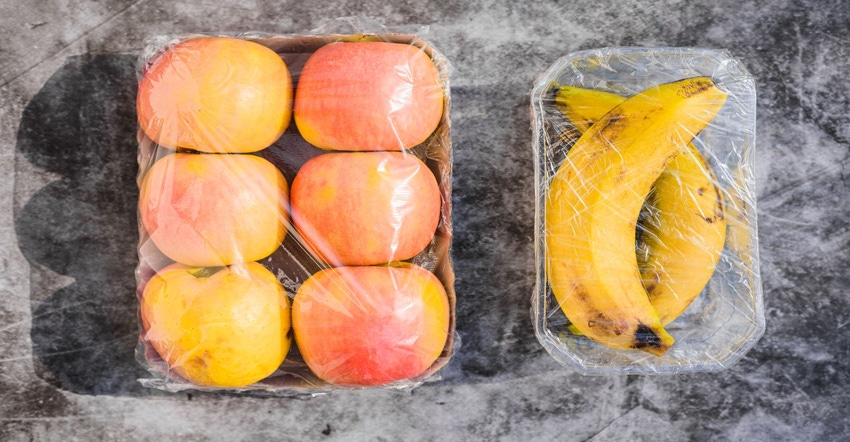How Companies Can Measure Plastic Waste Packaging
As the plastic pollution crisis gets the attention of global leaders and organizations, companies have increasingly promulgated plastics policies that don't truly measure the amount of packaging they are actually producing or saving. In a 2021 report by nonprofit As You Sow, only one of 50 corporations– Coca Cola – publicly reported the units of plastic packaging it sells.

Scores of companies say they have policies intended to ensure that none of their packaging ends up in nature. Yet few report detailed metrics showing how they’re doing at this task, or even how much plastic they generate in the first place. In a 2021 report by nonprofit As You Sow, only one of 50 corporations– Coca Cola – publicly reported the units of plastic packaging it sells.
So how can investors and other stakeholders determine which companies are walking their talk?
Kelly McBee, waste program coordinator at As You Sow, answers this question and others to help peel back the filmy layers that cloud companies’ sustainability stories and bring more clarity. As You Sow advocates for environmental and social corporate responsibility on behalf of companies’ shareholders.
Waste360: Who are the best go-to sources for information on how corporations address plastic waste?
McBee: To determine necessary corporate actions on plastic pollution, investors and other stakeholders must look to third-party leaders. They should look to the recommendations of the Ellen MacArthur Foundation New Plastics Economy Global Commitment, the U.S. Plastics Pact, and The Recycling Partnership.
The Global Commitment and the Plastic Pact, organized by the Ellen MacArthur Foundation, represent the largest and most diverse collaborative initiatives on plastics in the world. These efforts involve governments, corporations, investors, and other stakeholders that collectively identify, commit to, and act on respective solutions to plastic pollution, including plastic reduction and reusable packaging.
Waste360: How do you evaluate progress?
McBee: When corporations report against third-party recommendations, investors must also seek out third-party evaluations of progress. A prime reference point on plastics is recent groundbreaking research by Pew and SytemIQ, which found that all corporate commitments to date on plastics would only reduce deposition of plastic in the environment by 7 percent by 2040.
As You Sow’s recent Scorecard also qualifies for investors the legitimacy of corporate action on plastic looking at progress/performance. The Plastic Scorecard is informed by an advisory committee of investors, recycling and circular economy experts, corporate packaging experts, etc.
Waste360: Where are corporations becoming more transparent? Where do they fall short?
McBee: Over the last five years, as the plastic pollution crisis has gained global attention, we have seen corporations begin to acknowledge their responsibility in creating the issue and in needing to solve and prevent it. Some of the earliest and most widely recognized data on plastic pollution were global NGO brand audits where they quantify the pollution on beaches and other waterways by tallying the number of polluted packages by brand.
In response to brand audit data that was alarming stakeholders, corporations began reporting the percentage of their packaging that is recyclable. However, this reporting leverages the myth that what is recyclable in theory is actually recycled in practice. Corporations that solely report on the amount of packaging that is theoretically recyclable admit that the responsibility they take for packaging pollution ends at the design of the package. Meanwhile, 2022 data reveal the U.S. plastics recycling rate at below 6%.
Waste360: What details are investors asking for and what can they learn from them?
McBee: Today, investors ask for evidence that making packaging recyclable is decreasing plastic pollution, including asking companies to track and report on the percentage of their packaging that is recycled in practice and at scale.
This means that companies are financially ensuring – through voluntary contributions – that the necessary collection (bins at the homes of consumers and businesses) and sorting of this material (material recovery facilities that sort, clean, and bale these materials for sale) are in place. And they are ensuring that they are not putting a package in a market that cannot be recycled.
Waste360: What evolving sustainability models are hardest to capture good data on? Who’s addressing this and how?
McBee: Reuse in particular is an especially tricky reporting area. This is because using reusable or package-free alternatives to disposable packaging – let alone tracking their use – is nascent. At present, corporations report on the most basic reuse data, which is the number of reusable pilots they conduct at any given time. A company can boast 30 reuse pilots, but this says nothing about how these pilots may decrease a company’s exposure to plastic pollution.
Corporations, think-tanks, investors, etc. are discussing the most impactful metrics by which to measure reusable and package-free packaging, including the World Economic Forum’s Consumers Beyond Waste platform, a multi-stakeholder initiative focusing on identifying, guiding, and enabling the testing and scaling of reuse models.
As You Sow believes that reporting the annual percentage of global revenue from products sold in reusable or refillable packaging may be the most impactful data. This indicator would speak more accurately to the presence of reusable packaging.
Waste360: Tell us about As You Sow’s Scorecard and how it helps measure if/how companies are living up to their pledges.
McBee: As You Sow identifies quantifiable benchmarks that can determine where action is and is not being taken by companies that have made pledges.
Our latest Corporate Plastic Pollution Scorecard evaluates companies across 44 quantifiable metrics. It scores them across six areas of action that evaluate traditional waste management actions (recycling, use of recycled content) and actions that need to be adopted or improved (plastic use reduction, extended producer responsibility, reusable packaging, and data transparency).
Those six areas are: Packaging Design, Use of Package-Free and Reusable Packaging, Use of Recycled Content, Data Transparency, Financial Support of Recycling and End-of-Life Infrastructure, and Support for Extended Producer Responsibility.
Action is required by companies in all six pillars in order to show they live up to commitments to “ensure that none of our packaging ends up in nature.”
Waste360: When As You Sow works with companies to try and foster accountability, what do those companies hear that most gets their attention? And that calls them to action?
McBee: What most motivates them is when we demonstrate how they are being outperformed by competitors in the area of interest, such as a peer company setting a plastic use reduction goal before them. And how this can make them vulnerable to government regulation, loss of market share, loss of consumer loyalty, and divestment.
About the Author(s)
You May Also Like




